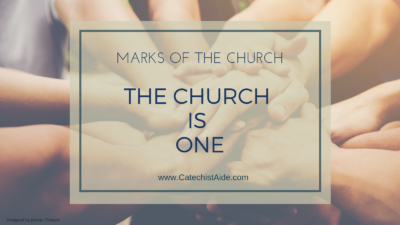The post will guide you and your students through a brief study of the Gospel reading from Sunday’s Mass.
Twenty-sixth Sunday in Ordinary Time – Mark 9: 38-48
Silence
Before reading God’s word in Scripture, instruct students to settle down and wait for silence, remembering the words of St. Teresa of Calcutta that, “it is in the silence of the heart that God speaks.” Allow for a brief period of silence then pray.
Prayer
Lord, inspire us to read your Scriptures and to meditate upon them day and night. We beg you to give us real understanding of what we need, that we in turn may put its precepts into practice. Yet we know that understanding and good intentions are worthless, unless rooted in your graceful love. So we ask that the words of Scripture may also be not just signs on a page, but channels of grace into our hearts. Amen (Attributed to Origen Adamantius, 184-253 AD)
Reading (Mark 9: 38-48)
John said to him, “Teacher, we saw someone
driving out demons in your name, and we tried
to prevent him because he does not follow us.”
Jesus replied, “Do not prevent him.
There is no one who performs a mighty deed
in my name who can at the same time speak ill of me.
For whoever is not against us is for us.
Anyone who gives you a cup of water to drink
because you belong to Christ, Amen, I say to you,
will surely not lose his reward.
Whoever causes one of these little ones who believe in me to sin,
it would be better for him if a great millstone
were put around his neck
and he were thrown into the sea.
If your hand causes you to sin, cut it off.
It is better for you to enter into life maimed
than with two hands to go into Gehenna,
into the unquenchable fire.
And if your foot causes you to sin, cut if off.
It is better for you to enter into life crippled
than with two feet to be thrown into Gehenna.
And if your eye causes you to sin, pluck it out.
Better for you to enter into the kingdom of God with one eye
than with two eyes to be thrown into Gehenna,
where ‘their worm does not die, and the fire is not quenched.'”
General Reflection Questions
(Ask these questions to the group, and all can participate in answering. The purpose is to discuss, in general, what happens in the text. In other words, what is the message God is saying to everyone in this Scripture passage?)
Last week the disciples were concerned with their own standing, arguing about who among them was the greatest. In today’s reading, we have the apostle John shutting down a man of faith because he is not “one of us.” We don’t know anything about this man that John speaks of. We are only told that he was an outsider – not one of the official disciples – and he used Jesus’ name to cast out demons. And, this doesn’t sit right with John.
Why do you suppose this man’s actions upset John to the point that he stopped him from speaking (verse 38)? John is upset that the man is not part of their group. Perhaps John didn’t want to share his position as part of Jesus’ inner circle with a stranger.
How does Jesus respond to John’s actions (verse 39)? Jesus corrects John and tells him not to stop the man. Jesus says that “whoever is not against us is for us.” The important thing for Jesus is the faith the man showed in speaking in his name, not whether the man was a member of the right group. He was more concerned with the man’s heart and his intentions.
Jesus goes on to say that every step of faith, no matter how small, will yield rewards. Even offering something as simple as a cup of water to someone, because they belong to Christ, will be rewarded. And then Jesus speaks about the “little ones,” but they aren’t necessarily children. Jesus could be referring to anyone whose faith, like a child’s, is still being formed. This might also apply to the man that John tried to stop from speaking in Jesus’ name.
What does Jesus say about those who cause “little ones who believe in me” to sin (verse 42)? He says they would be better off to put a millstone around their necks and be thrown into the sea.
A millstone is a large round, very heavy stone used for grinding grain. If someone were to tie one of these large stones around their neck and be thrown into the ocean they would surely sink to the bottom and drown. The point that Jesus is making here is that, as his followers, we all have a responsibility to those learning the faith. We should encourage and support the growth of faith in these little ones and do nothing that might cause them to turn from God.
Jesus then turns the conversation to our own sins and we hear him use some rather strong and graphic language. What does he say we should do if our hand causes us to sin and why (verse 43)? He says to cut it off because it would be better to be maimed and enter into life than have our two hands and go into Gehenna.
Jesus talks about two different places – one where we enter into life, and the other Gehenna. We are already alive, so this life is not the life he’s talking about. The life that Jesus refers to here is eternal life in heaven. Gehenna was the word used at the time to represent hell or a place of punishment and eternal fire.
Jesus repeats this notion of cutting off body parts that cause us to sin by including the feet and the eyes. Do you think Jesus intends for us to literally cut off body parts to avoid sin? Would cutting off our hand or foot or eye prevent us from sinning? No. We can sin with our hands or our feet or our eyes, but they are not the cause of our sins.
Personal Reflection Question
(This question is for individual, personal reflection, and students can write their response privately in their journals.)
Jesus calls us to examine our actions. He wants us to look closely at whether we live up to what we proclaim to be – Christians. He also calls us to examine what part of us is causing us to stumble and fall into sin, and to then detach from that part of our lives.
So, for instance, I might recognize that pride is a source of sin in my life. Perhaps pride causes me to think highly of myself and put down others. Pride may cause me to be overly competitive and want to win at any cost. It can cause me to point out the faults in others in an effort to make myself look better. To detach myself from pride I can begin practicing humility. I can humble myself by giving others an opportunity to lead, and by serving others. Prayer to the Blessed Mother, the model of humility, can help me detach from feelings of pride that are out of control.
Feelings of fear, anger, envy or jealousy can be perfectly normal and healthy, but they can become obstacles that lead us to sin when they are out of control. Sometimes even our friends can lead us to sin. Does this describe anyone in my life? Is there something or someone in my life that is a source of sin for me? What is something I can do to “cut off” the control that this person, situation or feelings have on my actions?
After writing in your journal, take a moment to be silent, thinking about what you have written. Pray silently to yourself:
Thank you Father for the gift of Your Word. With the help of your Spirit, help me to hear Your voice in Scripture, and to let it enter my head and my heart. Give me the strength to be transformed by Your Holy Word, and to live my life according to Your will. Amen.
© 2018 Catechist’s Aide






